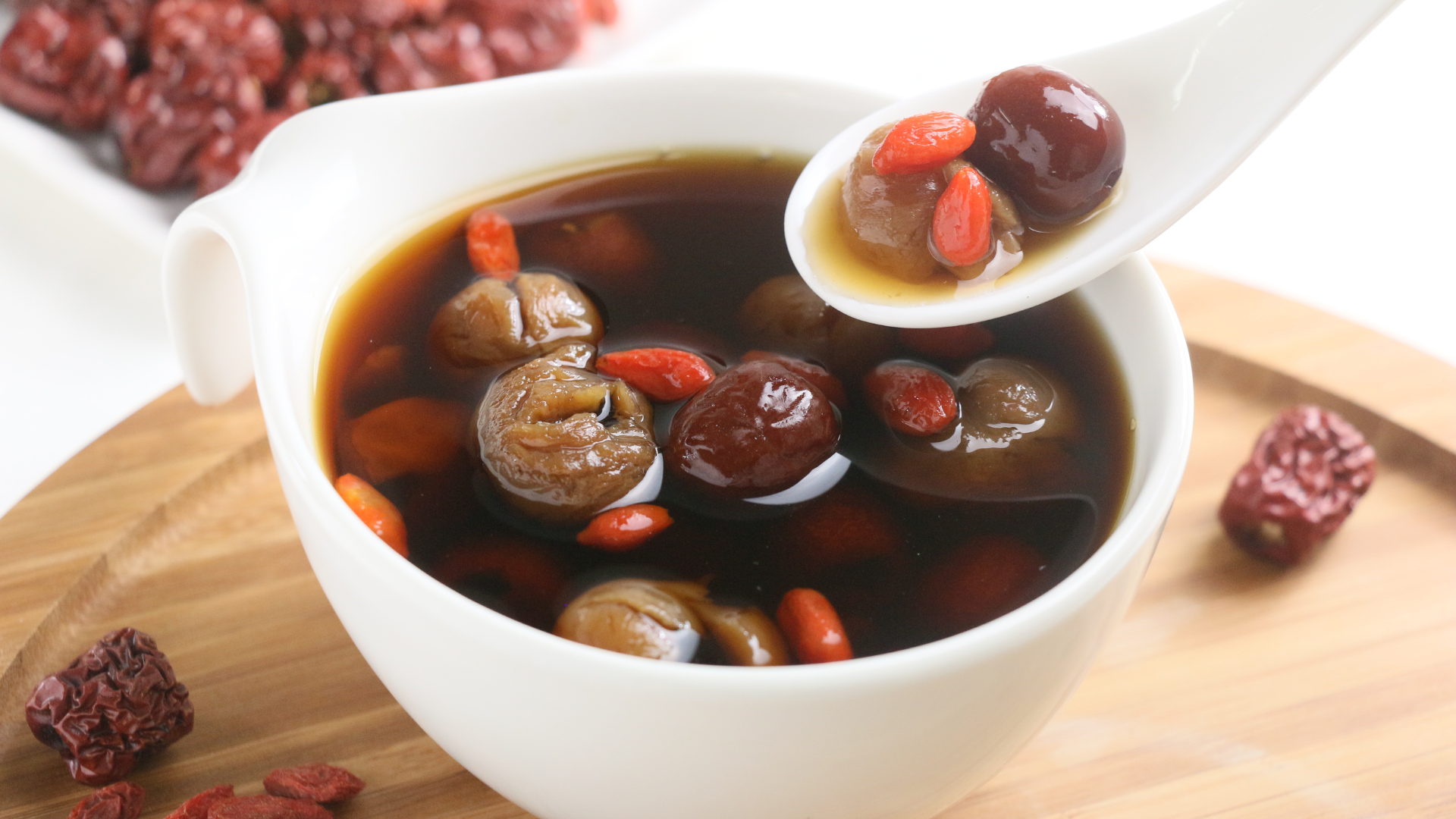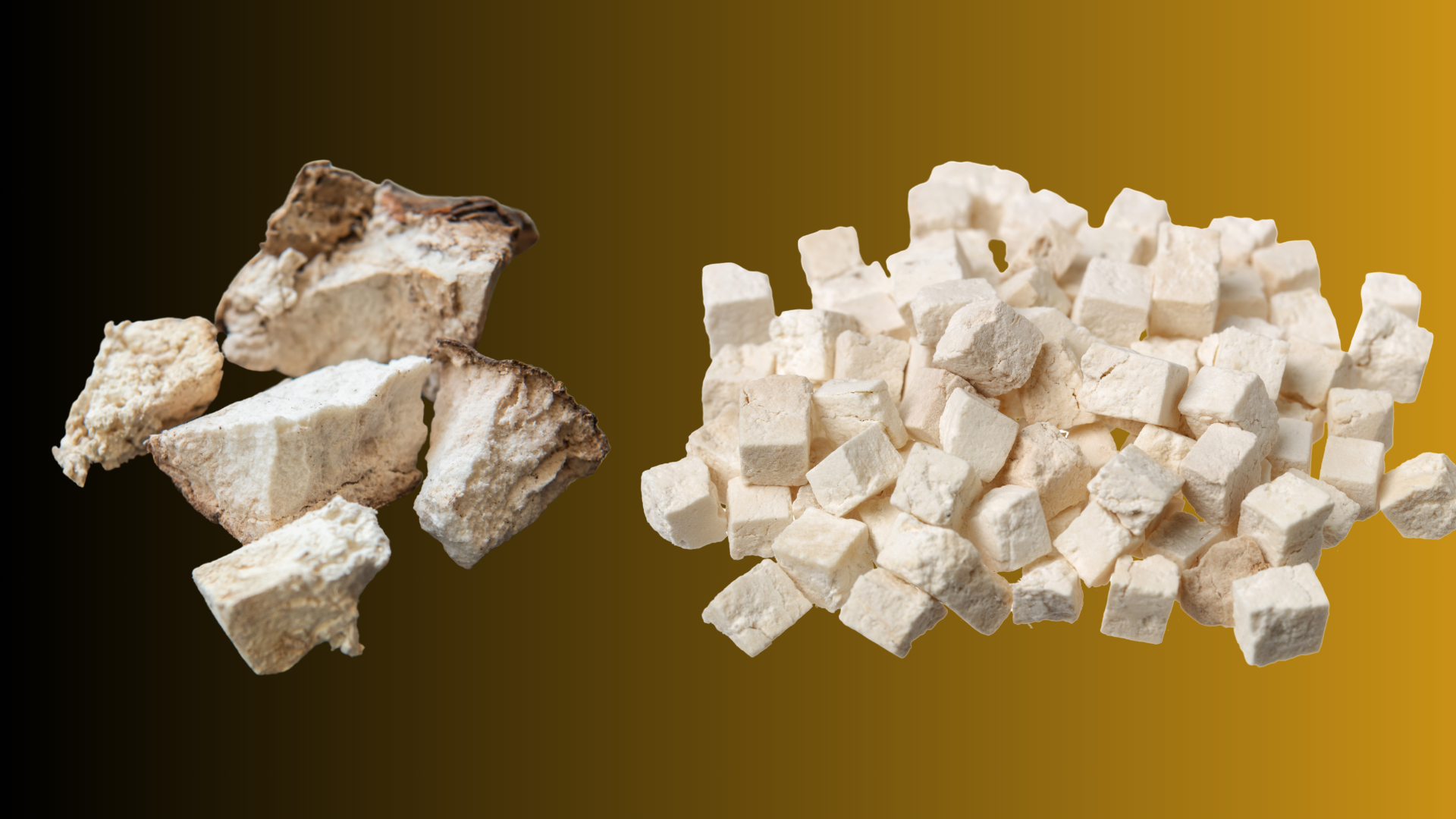Introduction
Fu Ling (茯苓) and Fu Shen (茯神) are two closely related medicinal substances commonly used in Traditional Chinese Medicine (TCM). Both are derived from the same fungal species, Poria cocos (茯苓菌) or Poria mushroom, a type of medicinal mushroom that grows around the roots of pine trees. While they share many properties, Fu Ling and Fu Shen have subtle differences in their effects and applications. This article explores their origins, benefits, and how they are used in TCM.
What Are Fu Ling and Fu Shen?
Fu Ling (茯苓)
Fu Ling, also known as Poria or Tuckahoe, is the dried sclerotium of Poria cocos. It has been used for centuries in TCM to support digestion, strengthen the spleen, promote urination, and calm the mind. Fu Ling is typically found as a white or pinkish-brown mass and has a mild, slightly sweet taste.
Fu Shen (茯神)
Fu Shen is a specific part of Poria cocos that contains the inner portion of the fungus attached to a piece of pine root. It is considered more potent in calming the spirit (Shen, 神) and is often used to treat insomnia, anxiety, and heart-related emotional disturbances. Because of its stronger Shen-calming properties, Fu Shen is particularly valued in formulas addressing emotional well-being.
Origins and History
Fu Ling and Fu Shen have been widely used in Chinese herbal medicine for over 2,000 years. They were first documented in classical texts such as the Shen Nong Ben Cao Jing (神农本草经, “Divine Farmer’s Materia Medica”), one of the oldest known pharmacopoeias of TCM. Ancient practitioners recognized their ability to balance fluids, support the digestive system, and stabilize emotions, making them key ingredients in many traditional formulas.
Health Benefits and Uses in TCM
- Strengthening the Spleen and Supporting Digestion
- Fu Ling is well-known for its ability to tonify the spleen (脾, Pí), an organ in TCM associated with digestion and the transformation of food into energy (Qi, 气). Weak spleen function can lead to symptoms such as bloating, poor appetite, and loose stools. Fu Ling is commonly used in herbal formulas to address these issues and improve digestive health.
- Promoting Urination and Reducing Dampness
- Both Fu Ling and Fu Shen help drain excess fluids from the body by promoting urination. This makes them effective for treating conditions like edema (fluid retention), urinary difficulty, and symptoms related to excessive dampness (湿, Shī) in TCM, such as heavy limbs and mucus buildup.
- Calming the Mind and Nourishing the Shen (神)
- Fu Shen is particularly valued for its ability to calm the mind and spirit (Shen, 神). It is often prescribed for people experiencing insomnia, anxiety, palpitations, and restlessness. Since Fu Shen grows attached to the root of a pine tree, some TCM practitioners believe it carries the grounding and stabilizing energy of the tree, making it especially effective for emotional balance.
- Supporting Heart Health
- In TCM, Fu Shen is associated with the Heart meridian, which governs both emotional and physical heart health. It is often used in formulas designed to nourish the heart, ease emotional disturbances, and improve sleep quality.
- Boosting Immunity and Overall Well-Being
- Modern research suggests that Poria cocos contains bioactive compounds such as polysaccharides and triterpenes, which may help modulate the immune system, reduce inflammation, and support overall health. Some studies indicate that Fu Ling may have antioxidant and anti-cancer properties, though more research is needed.
How to Use Fu Ling and Fu Shen
Fu Ling and Fu Shen are available in various forms, including dried slices, powder, and extracts. They are often used in herbal decoctions, teas, or included in traditional formulas such as:
- Gui Pi Tang (归脾汤, Restore the Spleen Decoction): A formula that includes Fu Shen to support digestion, calm the mind, and boost energy.
- Tian Wang Bu Xin Dan (天王补心丹, Heavenly Emperor Heart-Nourishing Pill): A famous heart-tonifying formula that helps with insomnia and anxiety, often containing Fu Shen.
- Ling Gui Zhu Gan Tang (苓桂术甘汤, Fu Ling, Cinnamon Twig, Atractylodes, and Licorice Root Decoction): A TCM formula used to resolve dampness and strengthen the spleen.
🔹 Poria Mushroom Supplement – Check them out here: https://www.iherb.com/pal/referral/pdp/CCQ2380?productId=128386&rcode=CCQ2380&utm_medium=appshare
Conclusion
Fu Ling and Fu Shen are powerful herbs in Traditional Chinese Medicine, valued for their ability to support digestion, remove excess fluids, and calm the mind. While Fu Ling is more focused on strengthening the spleen and promoting urination, Fu Shen has stronger Shen-c alming effects, making it a preferred choice for emotional and sleep-related issues. Whether used alone or in herbal formulas, these two herbs offer numerous health benefits and remain an essential part of TCM practice today.

Easy Herbal Remedy: Fu Ling Tea
Ingredients:
• 10g Fu Ling
• 10g dried longan (龙眼干) (or replace with red dates)
• 5 red dates (remove seeds)
• 1 tbsp goji berries (optional)
• 2 cups water
Instructions:
1. Rinse the herbs briefly.
2. Bring water to a boil, then add all ingredients.
3. Simmer for 20–30 minutes.
4. Enjoy it warm.
This tea helps promote relaxation, digestion, and remove excessive dampness (湿气) in the body.
“A warm cup of Fu Ling Tea- brings tranquility, and balance from the inside out.”

